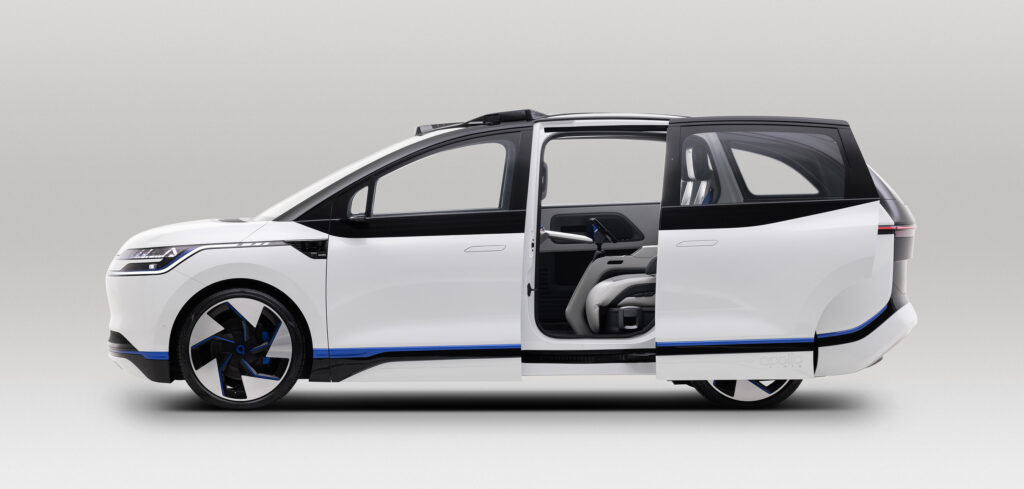Baidu has unveiled its next-generation fully autonomous vehicle, the Apollo RT6, which it describes as an all-electric, production-ready model with a detachable steering wheel. Designed for complex urban environments, Baidu states that Apollo RT6 will be put into operation in China in 2023 on Apollo Go, the company’s autonomous ride-hailing service. With a per unit cost of RMB250,000 (US$37,000), it is hoped that the arrival of the RT6 will accelerate AV deployment at scale.
“This massive cost reduction will enable us to deploy tens of thousands of AVs across China. We are moving toward a future where taking a robotaxi will be half the cost of taking a taxi today,” said Robin Li, co-founder and CEO of Baidu, at Baidu World 2022, the company’s flagship technology conference.
The RT6 is distinct from previous generations of robotaxi from the company, which were retrofits of conventional vehicles. It is the first vehicle model built on Xinghe, Baidu’s self-developed automotive E/E architecture developed specifically for fully autonomous driving.
The bespoke architecture has created new packaging possibilities. For example, its steering-wheel-free design opens up more space to tailor the interior, such as allowing for the installation of extra seating, vending machines, desktops or gaming consoles. At 4,760mm long with a wheelbase of 2,830mm, the RT6 is equipped with independent rear seating, rear legroom of 1,050mm, an entirely flat floor and an intelligent interaction system. The exterior features integrated sensors on the sunroof alongside interactive lights and intelligent electric sliding doors to enhance the riding experience.
The RT6 integrates Baidu’s most advanced L4 autonomous driving system, powered by automotive-grade dual computing units with a computing power of up to 1,200 TOPS. The vehicle utilizes 38 sensors, including eight lidars and 12 cameras, to obtain highly accurate, long-range detection on all sides. The safety and reliability of Apollo RT6 are backed by a total test mileage of over 32,000,000km driven by Baidu’s AVs to date.



